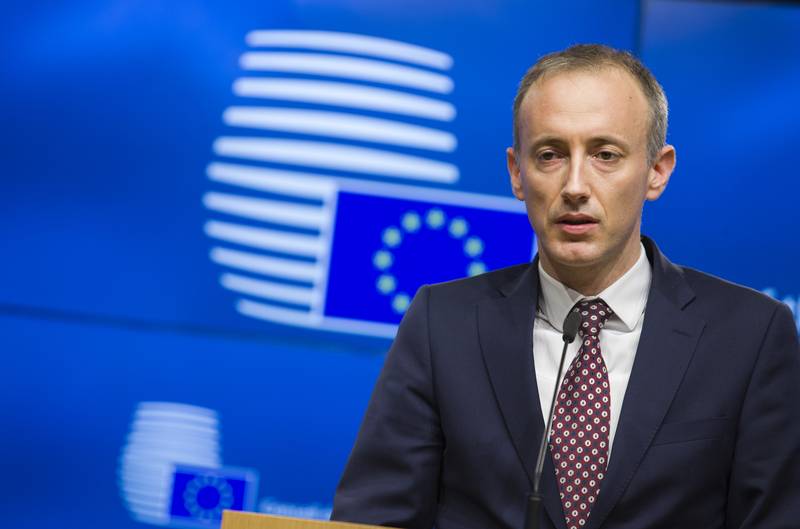Education is said to be a priority in Budget 2010 in Bulgaria
Adelina Marini, October 30, 2009
"The priorities in Budget 2010 are the social policy, education, healthcare, environment, road infrastructure, internal affairs and security". This is what the press release of the Ministry of Finance (MF) says. And in case doubt the statement, here is the evidence the MF presents: "Public expenses for education for the last years varies around 4% of the GDP but with Budget 2010 we foresee 4.2% of GDP".
Of course we cannot avoid making a very simple calculation that 4.2% of, say, 40 bn levs (20 bn euro) is one thing and quite different is 4.2% of 60 bn levs. In other words percentage don't matter when there is no money in the treasury. And why there is no money? This probably is the 1 million dollar question.
In fact, the money for education has been decreased with almost 2 percentage points. The same goes with other priority sectors. The only increase is in pensions with the significant 12%. And this is not because the pensioners are the most favoured social group in Bulgaria but simply because with each year they grow in numbers. And the main question the government which has just completed its first 100 days in power, should answer is: How can we deal with this from now on?
The ways to find the answer are several:
1. The most fundamental question should be: Who is going to pay for the constantly increasing number of pensioners in the next 10 days?
2. The children that enter and exit the system of education, are they well prepared to guarantee not only their own prosperity but also to support the growing army of elderly people?
3. And as I guess the answer to the above question is negative, we have to ask the next question: What can we urgently do to guarantee that next generation, and therefore the whole society, will produce well educated people with ideas; that will be able to think' to create added value' to be innovative so as to be able to create expensive products that are in demand etc?
4. And the next issue is not less important: Does the creation of such people require a lot of money?
I personally believe that it does not. However it requires every type of will - political, the will of the society, of teachers so that the education system is reformed. But not in the sense of reducing the school programme as the Ministry of Eduction is preparing to do, but just the opposite - to expand the scope of eduction toward more and different points of view, more discussions that will establish in our children the wish to think, to argue, to look for information so as to motivate themselves better. And this does not necessarily mean more studying. It just means content that will provoke children to ask for more knowledge by the kids themselves.
It also means introduction of stimuli for those who succeed as well as for their teachers. It means job opportunities and many other things. But in a country where the main occupation of media who are meant to keep the level of knowledge within a society, is various reports of the State Agency for National Security in a moment when we have so much more problems to solve, this cannot happen.
That is why the numbers in Budget 2010 are such: "The planned revenues on the consolidated fiscal programme for 2010 are 26,4 bn levs (13,5 bn euro) which is 41,6% of the GDP, including revenues from taxes, other income and aid". And even if the EU goes out quickly of the recession which will resume the Bulgarian export to the EU, things will not change dramatically. Because we shouldn't neglect the problem with the origin of the money of not a small part of Bulgarian companies, especially the big ones. For an economy it is very important to know what is the price of prosperity. If you have received without any effort money, then you don't know what to do with it.
 In the same time in Austria some 14,000 students protested the other day, and not for the first time, against the lack of reforms in the higher education. In Bulgaria there is no civil activity because people are educated like this - if you learn your lesson by heart you will be an excellent pupil, you will be tolerated by the teacher and you will prosper. The same scheme works when you grow up - if you listen to your boss and do not argue with him, you will grow in your career. But this does not increase the GDP, this does not feed the quickly growing army of pensioners and this does not create healthy people - just the opposite. The burden on the healthcare system is growing in a direction which directly resulted from the above described way of living - cancer at a diminishing age, heart-attacks and other strokes.
In the same time in Austria some 14,000 students protested the other day, and not for the first time, against the lack of reforms in the higher education. In Bulgaria there is no civil activity because people are educated like this - if you learn your lesson by heart you will be an excellent pupil, you will be tolerated by the teacher and you will prosper. The same scheme works when you grow up - if you listen to your boss and do not argue with him, you will grow in your career. But this does not increase the GDP, this does not feed the quickly growing army of pensioners and this does not create healthy people - just the opposite. The burden on the healthcare system is growing in a direction which directly resulted from the above described way of living - cancer at a diminishing age, heart-attacks and other strokes.
All these diseases are a very direct result of the lack of rule of law, of unjust estimation of personal capabilities at school, at work, in the street. And also of the fact that in our country there is the rule of the jungle - if you do not have values - you are rich. If you are well educated and you have values - you are a pathetic poor wretch.
 Krasimir Valchev | © Council of the EU
Krasimir Valchev | © Council of the EU | © euinside
| © euinside | © EU
| © EU